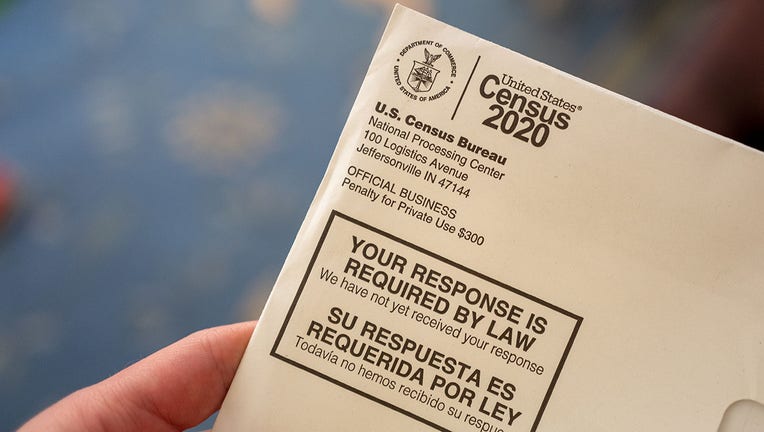Federal judge will rule later this week on shortening time frame for Census data collection

Close-up of human hand holding a letter from the Census Bureau regarding the 2020 Census
SAN JOSE, Calif. - A federal judge in San Jose heard arguments Tuesday on a
preliminary injunction that would block the U.S. Census Bureau from shortening the time frames for gathering and processing data for the 2020 census.
The plaintiffs -- a group including the National Urban League and
the cities of San Jose, Los Angeles and Salinas -- sued the U.S. Department of Commerce and Secretary Wilbur Ross, and the Bureau and Director Steven Dillingham, based on a decision by the secretary and the director to force "the Census Bureau to compress eight-and-a-half months of vital data-collection and data-processing into four-and-a-half months, against the
judgment of the bureau's staff and in the midst of a once-in-a-century pandemic."
The census is significant because the results are used to
determine congressional representation and are also used in apportioning federal funds distributed to the states.
According to the plaintiffs, "undercounted cities, counties, and
municipalities will lose representation in Congress and tens of millions of dollars in funding. And communities of color will lose core political power and vital services."
The suit challenges changes made in the operational plan that
guided the bureau's data gathering and processing for the decennial census.
The initial plan was upended by the pandemic and in April revisions to the plan reset and extended a number of the deadlines in the initial plan.
However, on Aug. 3, according to the plaintiffs, the secretary and
director abruptly changed course and shortened the deadlines in the revised plan. According to the plaintiffs, the staff at the bureau believed that the shortened deadlines would prevent a complete and accurate count.
U.S. District Judge Lucy Koh had previously entered a temporary
restraining order against the defendants that prevented them from
implementing the revised plan.
After the entry of the order, the government turned over internal
documents. One of the documents was an email between bureau employees that stated "we need to sound the alarm to realities on the ground ... it is ludicrous to think we can complete 100 percent of the nation's data collection (by the revised deadline) ... and any thinking person who would believe we can deliver apportionment (by the revised deadline) has either a mental deficiency or a political motivation."
Most of the argument at the hearing was devoted to the technical
question raised by the government of whether the decision to revise the deadlines constituted "final agency action" that could be reviewed by a court.
The judge took the matter under advisement and promised to release her decision no later than Thursday, when the order expires.

